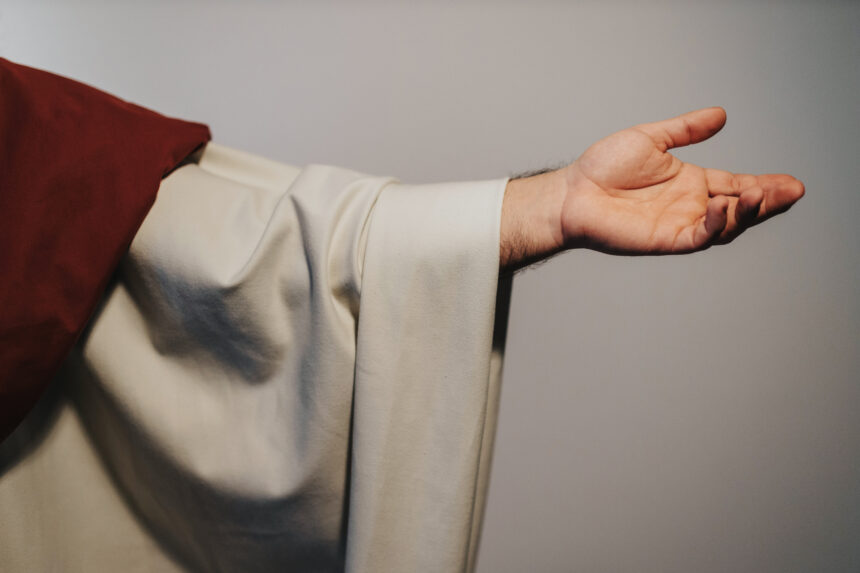In the complex tapestry of human spiritual understanding, a profound figure exists whose life and teachings have shaped centuries of human history: Jesus Christ. A central figure of Christianity, the man Jesus was seen by those in His era as a living, breathing individual. They experienced His suffering, His miracles, and His death. However, the prophetic text of Isaiah 9:6 paints a picture of Him that transcends mere human understanding: “For unto us a child is born, unto us a son is given: and the government shall be upon his shoulder: and his name shall be called Wonderful, Counsellor, The Mighty God, The Everlasting Father, The Prince of Peace.”
The term we will put under the microscope today is ‘The Mighty God’. This reference to Jesus as divinity rather than just a man has been a bone of contention amongst theologians for generations. The Jews, for instance, found it hard to reconcile this claim with their monotheistic beliefs (John 5:18; 10:33).
Biblical teachings, both Old and New Testaments, are emphatic in their proclamation of Monotheism. Deut. 4:35; 6:4-8; Isa. 45:5; 46:9; and Ex. 20:1-3 establish this assertion in the Old Testament, while John 4:22, 23; Matt. 4:10; Mark 12:29-34 and apostolic references (1 Tim. 2:5; 1 Cor. 8:4-6; Eph. 4:4-6; Jude 24-26) do so in the New Testament.
Yet, this raises a paradox: how can the Son of Man, a being born into human flesh, also be ‘The Mighty God’? The exploration of this question forms the basis of our discourse today.
Interestingly, the term ‘God’ is rarely associated with Jesus in the first three gospels, only coming into sharper focus in the fourth – the book of John (John 1:1,2; 20:28). In fact, ‘My Lord and my God’ is the remarkable testimony given by the apostle Thomas upon encountering the resurrected Jesus. The question of our Lord’s deity, therefore, stands at the centre of a profound paradox, which we will endeavour to explore.
Various biblical passages in the King James Version refer to Christ as God. These include Paul’s Epistles (Heb. 1:8, 9; Rom. 9:5) and one of John’s Epistles (1 John 5:20). Other passages suggesting His divinity include Phil. 2:6-11; Col. 2:9; Heb. 1:1-3; Col. 2:2; Tit. 2:13; 1 Tim. 3:16. However, those familiar with the original language and various translations know these verses can be interpreted in multiple ways.
To explore the nature of Christ’s deity further, let us consider the following. The Father Himself speaks of Jesus as God (Heb. 1:8,9). Furthermore, Jesus is accredited with the creation of the universe (John 1:1-3; Col. 1:14-17; Eph. 3:9; Heb. 1:1-3), an act traditionally ascribed to God alone (Gen. 1:1, 2; 2:2,3). The miracles Jesus performed also testify to His divinity (Matt. 11:5). He embodied His Father’s divine nature (Col. 2:9; Heb. 1:3), revealing the ‘God nature’ in the physical realm. This divine identity was confirmed when He accepted Thomas’s appellation – “My Lord and my God” (John 20:28). Moreover, Jesus received worship from His followers, something He would not have accepted if He were not truly divine (Luke 24:50-52). The Heavenly Father further instructs all angels to worship Him (Heb. 1:6), an act reserved solely for a divine being.
All these compelling narratives point to the undeniable fact of Christ’s deity. However, it’s essential to acknowledge that this topic, the divine nature of Jesus Christ, is vast, nuanced, and complex. It is a subject that has been discussed and debated by theologians for nearly two millennia, and it continues to generate differing perspectives and interpretations.
The duality of Christ’s human and divine nature represents an essential mystery at the heart of the Christian faith. While the philosophical and theological implications of this duality may seem daunting, it is worth noting that understanding Jesus as both ‘Son of Man’ and ‘The Mighty God’ is a cornerstone of Christian belief. This paradoxical view of Christ underlines the extraordinary nature of His mission and His unique role in the spiritual history of humankind.
In conclusion, the claim to the deity of Christ is not a frivolous or dismissive statement; instead, it’s a well-substantiated truth supported by numerous biblical references. To doubt the deity of Christ is to overlook the evident teachings of the Bible and ignore the divine facts demonstrated in His life and teachings. This belief in Christ as both human and divine forms the foundation of the Christian faith, which continues to inspire, guide, and give hope to billions worldwide.
Thus, we encourage our readers to ponder this profound belief and delve deeper into the fascinating and enriching narrative of the Holy Bible. Understanding the deity of Christ isn’t just an intellectual pursuit; it is a journey of faith that deepens our spiritual understanding and enriches our relationship with the divine.


Leave a Reply